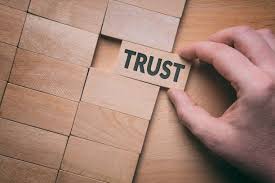The quiet erosion of trust in modern civilisation.
If there is one human value most at risk in our time, it is not compassion or tolerance — it is trust. Nations distrust one another, religions question each other’s motives, citizens doubt their Governments, and individuals wrestle with self-doubt. The human story, once bound by mutual faith, is now fraying at its most delicate thread. This is not merely a political or technological crisis — it is an existential one. And like all existential crises, it is entirely man-made. It stems from the very identities — national, religious, and personal — that were meant to unite humanity but now divide it. Modern politics wears nationalism as a badge of pride. “America First,” “India First”— these slogans, once considered narrow, are now celebrated as patriotism. Citizens applaud when leaders claim their nation’s interests override all else, even though such exclusivity pushes the world’s collective good to the margins. Nationalism in this absolutist form is a paradox: it calls itself pride but thrives on fear — fear of the other, of decline, of being left behind. And where fear prevails, trust perishes.
The idea of one humanity loses moral force, replaced by self-interest as the new global ethic. Religion, too, once humanity’s deepest well of meaning, has lost its contemplative heart. Faith today is often inherited, not realised; professed loudly, not practised quietly. The same religion now signifies surrender for some and superiority for others. When faith goes unexamined, it becomes brittle — and brittle faith is easily weaponised.
The spiritual essence that could have restored trust has been eclipsed by religion’s political expression. The more vocally we declare our gods, the less intimately we seem to know them. Leadership, the living embodiment of collective psyche, has also become theatre. In an age ruled by algorithms and applause, substance yields to spectacle. Conviction bends before convenience; image outshines integrity. Power has become the new measure of worth. Yet history is clear — where power concentrates, trust dissipates. Across democracies and dictatorships alike, the stronger the fist, the weaker the bond. Power without character corrodes the moral soil on which civilisation stands. Now artificial intelligence adds another layer to this crisis.
As we entrust machines with decisions that shape lives, the question arises —can we trust the humans programming them? The danger is not that AI will outthink us but that it will replicate our flaws — our prejudice, haste, and emotional emptiness. Rebuilding trust is not a political project but a personal one. No summit can legislate faith in one another. The true restoration begins within. Meditation — quiet, watchful awareness — is no longer a spiritual luxury but a civilisational necessity. In stillness, thought loses its sharp edges, and intelligence arises — untainted by comparison or fear. Such a mind trusts naturally because it perceives unity beneath difference. If humanity is to escape this age of mistrust, it must return to the only incorruptible source of trust: inner consciousness. Laws can regulate behaviour and treaties can defer conflict—but only a quiet mind can restore faith.
